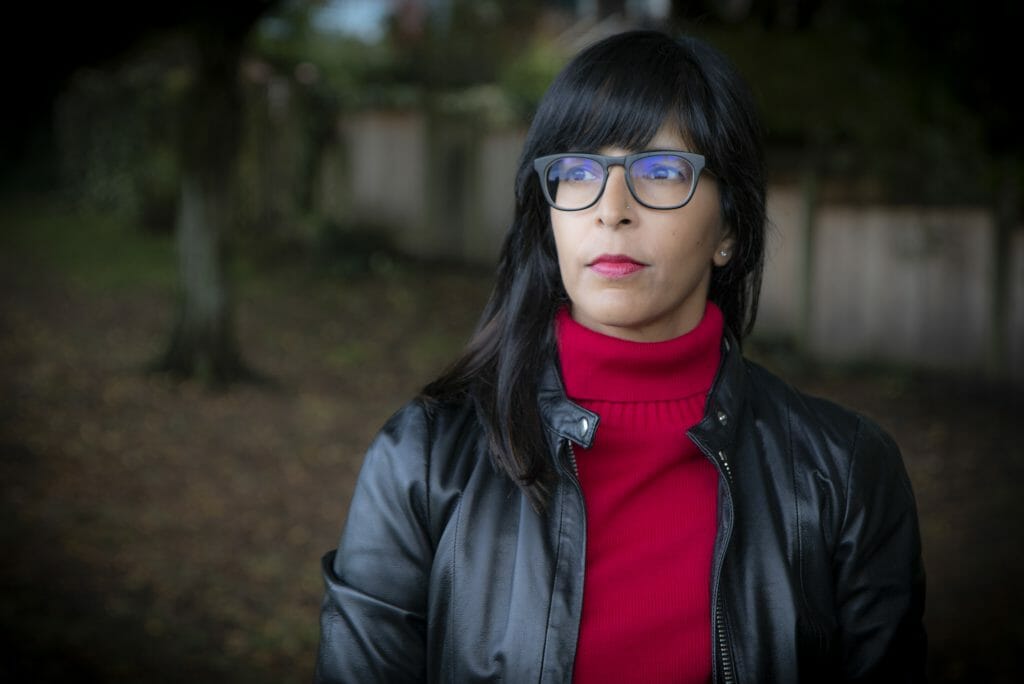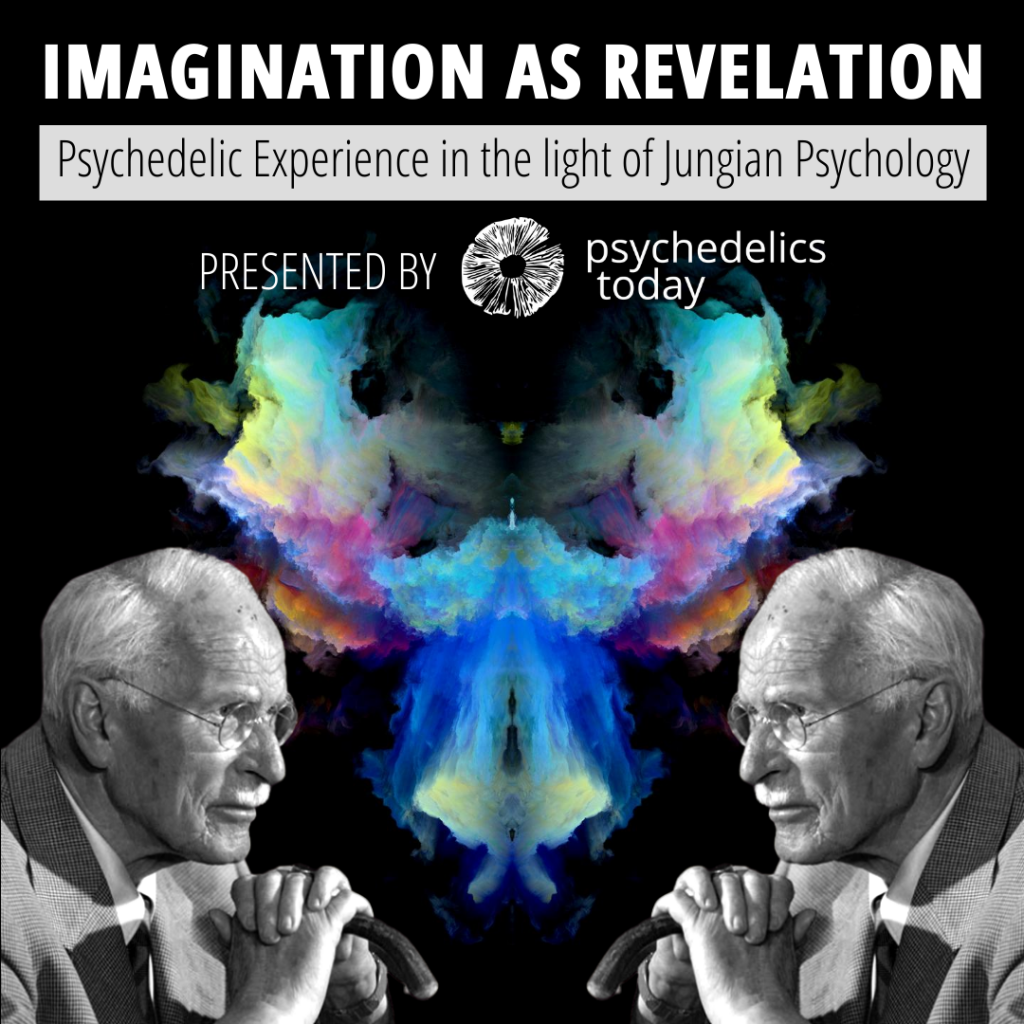By Sean Lawlor
Keeno Ahmed-Jones shares her experience trying to instill anti-racism values at a major psychedelics institution, and how difficult it proved to be.
As progressive and inclusive as the psychedelic renaissance purports itself to be, there are continuing issues around understanding, respecting, and making efforts to expand equity and inclusion in psychedelic spaces. Without an honest recognition of how systemic issues are manifesting in the burgeoning psychedelic industry, the psychedelic renaissance will inevitably fail to help our world heal from painful, ongoing social injustices.
In October of 2020, MAPS Canada became the subject of these issues when an Open Letter and Call to Action was published. The authors, Keeno Ahmed-Jones and Ava Daeipour, detailed their efforts to help MAPS Canada implement ethical, socially conscious and culturally sensitive policies and move towards equitable access to psychedelics. These efforts were subsequently obstructed by the organization.
In this interview, we hear from Keeno Ahmed-Jones about her experiences that led to the Open Letter and Call to Action. She shares details of her professional background in education advocacy and policy work, and how it helped inform her endeavors at MAPS Canada.
*Note to reader: This interview took place in March of 2021. In the weeks that followed, a second Open Letter was written addressing further issues with the MAPS Canada board. In the past three months, three members of MAPS Canada’s board have resigned.

Sean Lawlor: Can you describe how you came to work for MAPS Canada?
Keeno Ahmed-Jones: I moved to Canada in 2018, after being in New York for over 20 years. My professional background is in K-12 and adult education; I’ve worked in public service for a long time, including for major governmental organizations. My first exposure to systemic stratification in the context of educational opportunities was during my tenure at the New York City Department of Education, which, at the time, served 1.2 million school-aged students. I then served for several years advising the Board of Regents and leadership at the New York State Department of Education on programs and policies for adults and out-of-school youth. When I came to Vancouver, my birthplace, I knew of the research that MAPS was doing on MDMA, saw there was a chapter here, and was interested in seeing how I could contribute to their efforts as a volunteer.
Given my background, I started volunteering on the policy committee, but when I saw that they were well situated, I asked if there was a diversity committee. One thing that was very notable to me upon attending the first general volunteer meeting was the lack of people of color in attendance; out of the 40-plus people there, I was one of three in the room from a racialized background. And so, when I found out that there wasn’t an active diversity committee, I started one, which I co-led with another woman, Ava Daeipour, who ended up helping me write the open letter and call to action sent to MAPS Canada. The letter brought into high relief a lot of the issues that I think are endemic not only for MAPS Canada as an organization, but really… you hear the term “psychedelic renaissance” bandied around, and I think that psychedelic renaissance really needs to raise the bar, based on my experiences at least.
SL: Specifically in terms of diversity?
KAJ: Diversity is one element. But beyond that, I think MAPS Canada really had the opportunity to become an exemplar of an organization and, unfortunately, instead of listening to people such as myself trying to inform and educate them on how to become a twenty-first century organization centered on anti-racist values, collective liberation, and the tenets of cultural humility, they really actively resisted that.
I understand their advocacy for psychedelics, but I think there is an essential question that MAPS Canada and other organizations in this space need to ask, which is beyond diversity. “Is the playing field equal?” Every organization, non-profit or not, loves to talk about “corporate social responsibility,” and publicly place those statements front and center, especially in the wake of Black Lives Matter and the gaping inequalities that came to the fore in 2020. The pandemic illuminated a wide chasm that exists between the haves and the have-nots. And the murder of George Floyd compounded that reality into vivid detail for a lot of people that didn’t understand the traumas that people of color have had to endure—and I want to specifically forefront Black and Indigenous folks who have lived under the yoke of that oppression in North America.
But, beyond the logistical hurdles around regulatory frameworks and proselytizing about legalizing psychedelics—and I do understand the passion and advocacy for that—when it comes to eventual access to these novel MDMA and other psychedelic treatments, some key questions need to be answered. Who’s going to be first in line to receive these treatments? Who’s going to be administering them? Who’s going to be doing the integration work? I’ll venture to guess that the clinic up the street from my old office in New York City charging $4000 for a course of ketamine sessions is not within reach for the vast majority of people.

SL: For folks who are less familiar with the situation, would you be willing to share more about what happened at MAPS Canada, and your experience in the wake of the open letter?
KAJ: I came to my volunteer role from a background where my work was mediated via a policy lens, with a lot of value placed on collaborative and community-based approaches. Gaining diverse perspectives and working within a framework that ensured equity and inclusion was critical because in my work, decisions had the power to materially impact very marginalized people who were already struggling and in need of fierce advocates. And one of the things I came to value through those experiences was being on the ground with people knee-deep in those efforts, including people living those stories of struggle. I find that kind of work not just a calling, but a privilege.
At MAPS Canada, I did not see those conversations happening, frankly—internally or externally. There seemed to be no interest nor engagement. So, one of the things that I started to advocate for early on was introducing a JEDI (Justice, Equity, Diversity, and Inclusion) framework, and talking about collective liberation—which were both in various stages of implementation at MAPS in the US, so I thought that both would be relatively easy to adopt. But I was basically told: hold the phone; we are not about collective liberation, and MAPS Canada is not a “save the whales” organization. It was incredible to hear someone actually say that to my face.
After living in New York City, I think I had a bit of a mythologized vision of what life would be like in Canada, to be in a community that I thought had a better, more compassionate understanding of racism and colonialism. And I quickly found that was very much not the case. Rather, it’s been more problematic, because a lot of people are under the delusion that Canada is a post-racial society. Of course, that myth is quickly debunked if you look around, whether that’s at the overrepresentation of Blacks in the prison population, the deplorable treatment of First Nations in the healthcare system, racial inequities in school suspensions, police surveillance, wage inequities, I could go on.
So, while MAPS Canada released quasi-apologetic statements after the open letter came out about having limited staff, and claims about suffering from the affliction of being white with blind spots, and so on [Psychedelics Today tried to find the links to these statements but could not]… a huge part of what occurred, and what is happening across the psychedelic domain, comes down to worldview. It’s a values decision. And, as far as boardrooms of nonprofits and for profits, white voices, most of them male, are what is valued.
And so, instead of true coalition building, stepping down from that pedestal to engage in critical dialogue around equity, access, and reciprocity, there’s a Gollum effect taking place, a sort of metastasizing hunger for the psychedelic gold ring, if you will. There are the pandemic Instagram photos of these same folks in Costa Rica scoping out places for retreat centers, or multinational corporations looking for real estate in the downtown eastside of Vancouver to open for-profit clinics.

SL: Thank you for sharing all that. Once you put out the open letter, was there any change or acknowledgement? I know there was a lot of exposure around it, but do you feel that it was heard?
KAJ: Well, materially, has there been any change? Not to my knowledge. I know that a lot of declarations have been made, not only from MAPS Canada, but other organizations in this space that are adjacent to MAPS Canada. I feel like when an organization goes through a bit of a public relations debacle, like MAPS Canada did, the propensity is to do damage control. And when you have an all-white board, for example, attempts are made to diversify that board. But just because you now have a brown or black face on your board, that doesn’t really mean anything. The proof is in the pudding, as they say.
I think there needs to be a radical reimagining of what this “psychedelic renaissance” looks like. Many of these organizations have constructed these top-down, colonial projects with extractive ideologies, have conflicts of interest and undisclosed public/private partnerships, and lack accountability and transparency. Those are major concerns that need to be addressed first and foremost, prior to thinking about whether your organization is diverse enough.
SL: So, the open letter was published in October 2020; what has your focus been? Are you still working in this psychedelic renaissance?
KAJ: I am, and thank you for asking that question. A lot of people have asked me that. I think one of the most brilliant things about the open letter was the support it received from all around the world—including Indigenous activists in Canada, the US, and the Global South. I’ve been in conversation with some of them, including in Canada, who shared their interactions with people in leadership at MAPS before and had less than stellar experiences, and so just did not want to engage.
I do have a project that’s in motion, which I hope to share soon, interwoven with the themes of psychedelics, social justice, mental health, and drug policy. And I am working with grassroots activists, practitioners, and other bright lights in the space envisioning sustainable models of self-determination and new ethical frameworks.

SL: I look forward to this project when the time comes to announce it. Last thing I want to ask: As you can probably tell, I am a white person working in the psychedelic field, and I want to keep getting more involved. Looking at the reality that there is a disproportionate amount of white people in this work, what would you suggest white folks in this movement do in order to help change these issues?
KAJ: I love that question and think it’s a good one. Taking the step to educate myself has always been a core tenet of my approach and what I recommend to others. There are so many resources out there on anti-racism. Read books about the colonization and history of the Americas authored by Black and Indigenous authors. Examine issues around white fragility. I think those are solid building blocks.
Being able to sit in that container of self-examination is really important—apart from the psychedelic journeys—because I think a lot of people go to that as a shortcut. But entheogens are not an antidote for racism. MDMA is not some sort of cosmic equalizer.
I think we need to think more holistically about understanding privilege, being in community, and doing a lot of listening. “Why is this space not more diverse?” I think that’s a huge question in these spaces. Why are the people attending these community meetings not representative of this city I live in? Is there something unwelcoming about this space?
I think it has to be a slow, gradual approach. It’s not going to happen overnight. There needs to be trust-building, community-building, and a lot of listening. That really takes time, intention, and effort, and I think it begins with an in-depth examination of privilege. These are deep assumptions and beliefs that people have held onto that have to be challenged.
Psychedelics Today reached out to MAPS Canada for a comment on how the organization has been moving forward since the Open Letters were published and the work (if any) that it is doing to be a more inclusive institution. Their Board Chair, Eesmyal Santos-Brault, provided us with this statement:
MAPS Canada has made significant changes in the past six months to its leadership, board of directors, governance, accountability reporting, and operational structure, and this work is ongoing. As part of this, we are undertaking the work of creating new codes of conduct, ethics, and practice for all current and future board members, staff, and volunteers. Our current diversity committee, which consists of eight volunteer members (all of whom represent a wide spectrum in terms of age, and self-defined gender, sexual orientation, ethnic background, racial identification, indigeneity, spiritual beliefs, ability, and more) are leading MAPS Canada’s work to articulate and embed our commitment to equity, justice, diversity, inclusion, and reconciliation within the structures of our organization and all that we do, beginning with a new Terms of Reference drafted by the committee in November, 2020. This work is ongoing, and we look forward to sharing our progress in these areas with all stakeholders and the public in the coming weeks and months.
This piece was updated on July 28, 2021. In the original article it said that three members of the MAPS Canada Board had resigned in the past two months, it has been changed to three months.

Sean Lawlor is a writer, certified personal trainer, and Masters student in Transpersonal Counseling at Naropa University, in pursuit of a career in psychedelic journalism, research, and therapy. His interest in consciousness and non-ordinary states owes great debt to Aldous Huxley, Ken Kesey, and Hunter S. Thompson, and his passion for film, literature, and dreaming draws endless inspiration from Carl Jung, David Lynch, and J.K. Rowling. For more information or to get in touch, head to seanplawlor.com, or connect on Instagram @seanplawlor.
